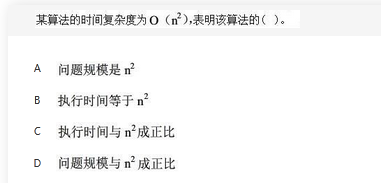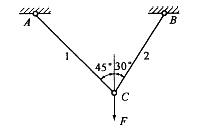考试:军队文职人员招聘
问题:
“How many copies do you want printed, Mr. Greeley?” “Five thousand!” The answer was snapped back without hesitation. “But, sir,” the press foreman protested, “we have subscriptions for only five hundred newspapers.” “We’ll sell them or give them away.” The presses started rolling, sending a thundering noise out over the sleeping streets of New York City.?The New York Tribune?was born. The newspaper’s founder, owner, and editor, Horace Greeley, anxiously snatched the first copy as it came sliding off the press. This was his dream of many years that he held in his hand. It was as precious as a child. Its birth was the result of years of poverty, hard work, and disappointments. Hard luck and misfortune had followed Horace all his life. He was born of poor parents on February 3, 1811, on a small farm in New Hampshire. During his early childhood, the Greeley family rarely had enough to eat. They moved from one farm to another because they could not pay their debts. Young Horace’s only boyhood fun was reading—when he could snatch a few moments during a long working day. The printed word always fascinated Horace. When he was only ten years old, he applied for a job as an apprentice in a printing shop. But he didn’t get the job because he was too young. Four years later, Horace walked eleven miles to East Poultney in Vermont to answer an ad. A paper called?the Northern Spectator?had a job for a boy. The editor asked him why he wanted to boa printer, Horace spoke up boldly: “Because, sir, I want to learn all I can about newspapers.” The editor looked at the oddly dressed boy. Finally he said, “You’ve got the job, son.” For the first six months, room and board would be the only pay for his work. After that, he would get room and board and forty dollars a year. Horace hurried home to shout the good news to his family. When he got there, he learned that his family was about to move again—this time to Pennsylvania. Horace decided to stay and work. Mrs. Greeley hated leaving her son behind, but gave her consent. Twice during his apprenticeship Horace walked six hundred miles to visit his family. Each time, he took all the money he had saved and gave it to his father. The?Spectator?failed after Horace had spent four years working for it. He joined his family in Erie, Pennsylvania, and got a job on the?Erie Gazette. Half the money he earned he gave to his family. The other half he saved to go to New York. When he was twenty, Horance arrived in New York with ten dollars in his pocket. He was turned down twice when he asked for a job. Finally he became a typesetter for John T West’s Printery. The only reason Horace got the job was that it was so difficult other printers wouldn’t take it. His job was to set a very small edition of the Bible. Horace almost ruined his eyes at that job. As young Greeley’s skill grew, better jobs came his way. He could have bought better clothes and moved out of his dingy room. But he was used to being poor, and his habits did not change He spent practically nothing on himself. Even after his?Tribune?became a success, he lived as if he hadn’t enough money for his next meal. The?Tribune?grew and thrived. It was unlike any newspaper ever printed before in the United States. Greeley started a new type of journalism. His news stories were truthful and accurate His editorials attacked as well as praised. Many people disagreed with what he wrote, but still they read it. The?Tribune?became America’s first nationwide newspaper. It was read as eagerly in the Midwest and Far West as it was in the East. Greeley’s thundering editorials became the most powerful voice in the land. Greeley and his?Tribune?fought for many causes. He was the first to come out for the right of women to vote. His?Tribune?was the leader in demanding protection for homesteads in the West. He aroused the north in the fight against slavery. During a depression in the East, jobless men asked what they could do to support themselves. Said Greeley: “Go West, young man, go West!” As the?Tribune?gained more power, Greeley became more interested in politics He led in forming and naming the Republican party. He, more than any other man, was responsible for Abraham Lincoln’s being named to run for President. Horace Greeley was first of all a successful newspaperman. He was also a powerful political leader. But he was not a popular man. In 1872 he ran for President against Ulysses S Grant. Grant was re-elected by an overwhelming margin. Greeley then in deep mourning over the recent death of his wife. He was heart-broken over losing the election. He never recovered from the double blow only weeks after his defeat, he died in New York City. His beloved?Tribune?lived on after him as the monument he wanted. Just before died, he wrote: “I cherish the hope that the journal I projected and established will live and flourish long after I shall have mouldered into forgotten dust, and that the stone that covers my ashes may bear to future eyes the still intelligible inscription, Founder of the?New York?Tribune.”
The?Tribune?was different from all other American papers because it was _____.
A:available by subscription only
B:printed in New York city
C:distributed throughout the nation
D:it offered the editor’s personal opinions only
答案:
解析:
相关标签:
英语言文学(军队文职) 文职 语言文学 军队 thousand Greeley











